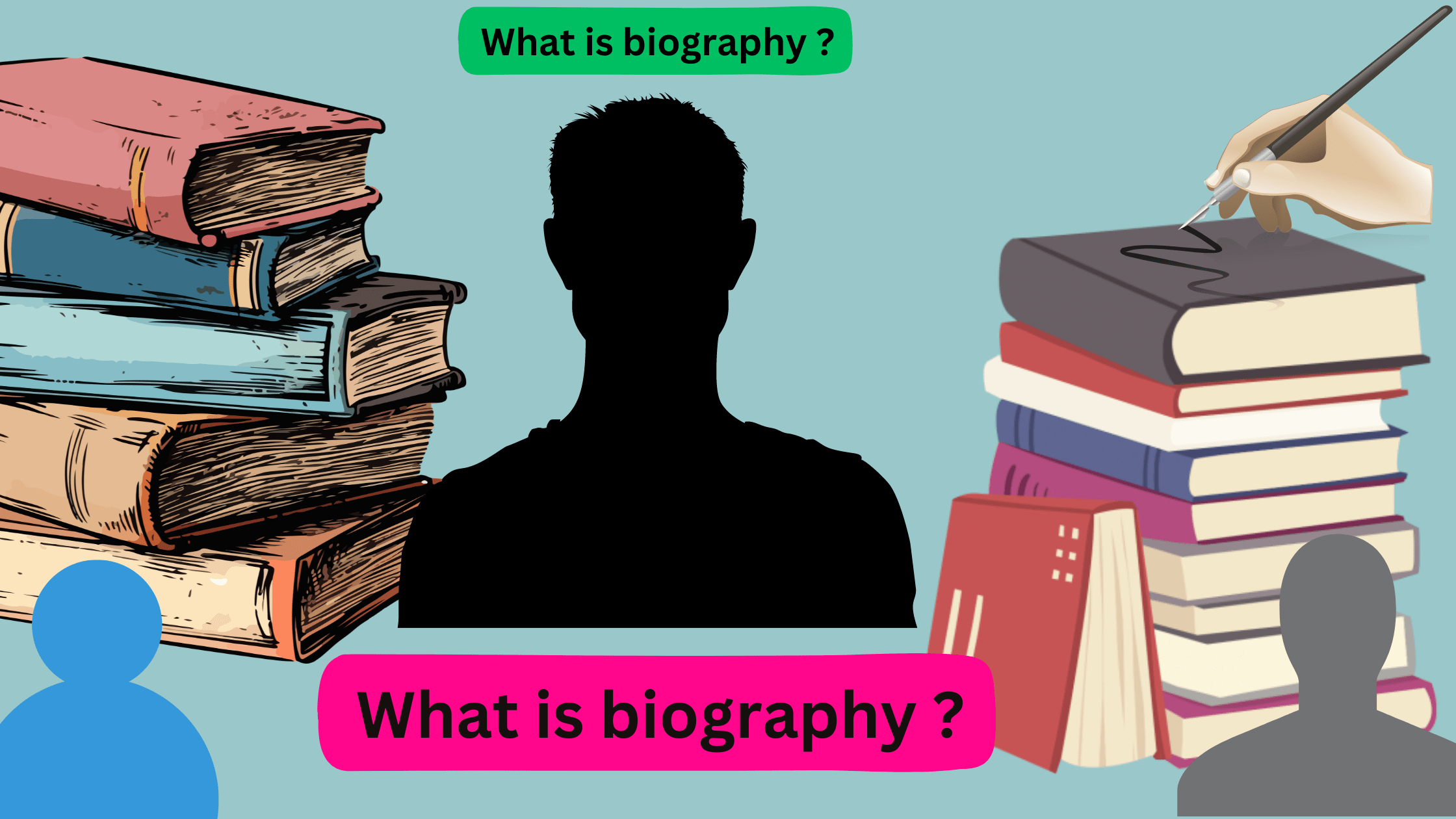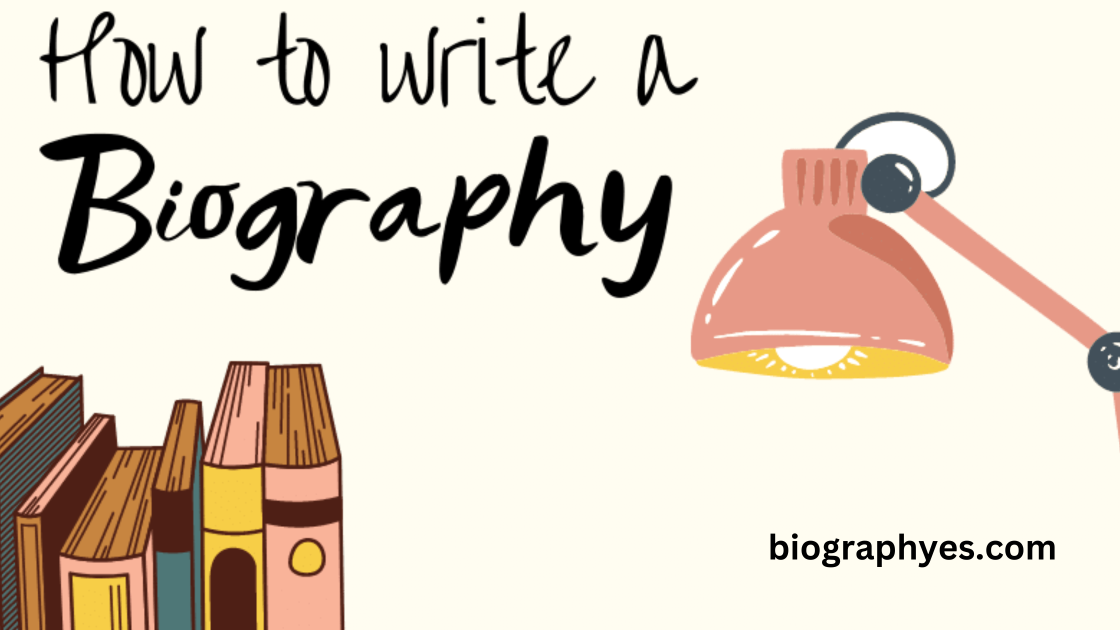biography what is it
Are you curious about what a biography actually is? Look no further! In this article, we will delve into the world of biographies, exploring their purpose, types, and significance. A biography is not just a dry recitation of facts; it is an intimate portrayal of a person’s life, capturing their experiences, accomplishments, and challenges.
Whether you’re a history buff, a literature lover, or simply interested in learning about extraordinary individuals, biographies offer a fascinating glimpse into the lives of noteworthy people from various fields. From politicians and artists to scientists and activists, biographies give us the opportunity to walk in the shoes of inspiring individuals and gain insights into their motivations and contributions to society.
Join us as we unlock the secrets of this captivating genre, exploring how biographies are crafted, the impact they have on readers, and how they can inspire us to reach for greatness. Let’s embark on a journey to discover the power of biographies and the stories that shaped our world.
The importance of biographies
Biographies are more than just a collection of facts and dates – they are powerful tools that allow us to connect with the most influential and inspiring individuals in history. At their core, biographies serve as a window into the lives of those who have made a lasting impact on the world around them.
By delving into the personal stories, struggles, and triumphs of remarkable people, biographies offer us a unique opportunity to gain a deeper understanding of the human experience. They shed light on the complex motivations, decisions, and circumstances that shape the lives of extraordinary individuals, providing us with valuable insights that can inform and enrich our own lives.
Moreover, biographies have the power to inspire and uplift us, reminding us of the incredible feats that humans are capable of achieving. When we read about the tenacity, courage, and resilience of individuals who have overcome adversity, we are often motivated to push our own boundaries and strive for greatness. Biographies have the ability to ignite our imaginations, fueling our dreams and aspirations, and serving as a testament to the boundless potential of the human spirit.
Different types of biographies
Biographies come in a wide variety of forms, each with its own distinct focus and approach. From the traditional chronological narrative to the more unconventional thematic or anecdotal styles, the genre of biography is rich and diverse, catering to the diverse interests and preferences of readers.
One of the most common types of biographies is the comprehensive, cradle-to-grave account, which traces the subject’s life from birth to death, providing a detailed and thorough exploration of their experiences, achievements, and legacy. These biographies often delve deep into the personal and professional lives of their subjects, painting a vivid and multifaceted portrait that captures the essence of the individual.
In contrast, specialized biographies focus on specific aspects or periods of a person’s life, such as their artistic or political career, their formative years, or a particular pivotal moment that shaped their trajectory. These more focused works allow for a more in-depth examination of a particular facet of the subject’s life, offering readers a more targeted and nuanced understanding of their subject.
Collaborative biographies, which involve the subject’s active participation or the input of multiple authors, can also provide a unique and insightful perspective. These biographies often offer a more intimate and personal portrayal of the individual, as they incorporate the subject’s own reflections and recollections, as well as the perspectives of those who have been closely involved in their life.
Regardless of the specific form they take, biographies serve as powerful tools for understanding the human experience, inspiring us to explore the lives of those who have left an indelible mark on the world.
How to write a biography
Crafting a compelling and impactful biography is no easy feat, as it requires a delicate balance of meticulous research, thoughtful analysis, and skillful storytelling. The process of writing a biography is a complex and multifaceted endeavor, with each step playing a crucial role in the final product.
At the heart of any successful biography is a deep and thorough understanding of the subject’s life, which can only be achieved through extensive research. This involves scouring through a wide range of primary and secondary sources, from personal letters and diaries to historical archives and scholarly works, to uncover the most accurate and comprehensive information about the individual’s experiences, achievements, and personal life.
Once the research phase is complete, the writer must then carefully curate and synthesize the gathered information, identifying the most significant and compelling aspects of the subject’s life to include in the biography. This process requires a keen eye for detail, as well as the ability to discern the most impactful and meaningful moments that will captivate the reader and provide valuable insights into the subject’s character and motivations.
With the research and content curation complete, the writer must then turn their attention to the structure and narrative arc of the biography. Effective biographies often follow a chronological or thematic approach, guiding the reader through the subject’s life in a logical and engaging manner. This may involve the use of vivid descriptions, dialogue, and anecdotes to bring the subject’s experiences to life, as well as the strategic placement of key events and milestones to create a cohesive and compelling narrative.
Throughout the writing process, the biographer must also consider the unique perspective and voice they wish to convey, ensuring that their interpretation and analysis of the subject’s life is both insightful and authentic. This may involve the incorporation of the writer’s own reflections and interpretations, as well as the careful consideration of the subject’s personal and cultural context to provide a comprehensive and nuanced understanding of their life and legacy.
Researching for a biography
Crafting a comprehensive and engaging biography requires meticulous research, as the writer must delve deep into the subject’s life to uncover the most significant and compelling details. This research process is a crucial step in the biographer’s journey, as it lays the foundation for a well-informed and impactful narrative.
The first step in the research process is to gather a wide range of primary sources, such as personal letters, diaries, and other first-hand accounts that provide a direct window into the subject’s experiences and perspectives. These intimate documents can offer invaluable insights into the individual’s thoughts, emotions, and decision-making processes, helping the biographer to develop a more nuanced and authentic understanding of their subject.
In addition to primary sources, biographers must also scour through a wealth of secondary sources, including biographies, historical records, and scholarly works, to contextualize the subject’s life within the broader social, political, and cultural landscape of their time. This comprehensive approach to research allows the writer to paint a more complete and holistic picture of the subject, highlighting the ways in which their experiences were shaped by the world around them.
As the research process progresses, biographers must also be prepared to confront gaps or inconsistencies in the available information, requiring them to employ creative problem-solving strategies to fill in the missing pieces. This may involve conducting interviews with family members, colleagues, or other individuals who were close to the subject, or delving deeper into specific historical events or cultural influences that may have had a significant impact on the subject’s life.
Throughout the research phase, biographers must maintain a keen eye for detail, carefully sifting through the vast trove of information to identify the most relevant and compelling details that will form the foundation of their narrative. This meticulous approach not only ensures the accuracy and authenticity of the biography but also helps to create a rich and immersive reading experience for the audience.
Structuring a biography
Crafting a compelling and impactful biography requires more than just a collection of facts and anecdotes – it demands a carefully constructed narrative structure that guides the reader through the subject’s life in a cohesive and engaging manner.
One of the most common and effective approaches to structuring a biography is the chronological narrative, which follows the subject’s life from birth to death, tracing their journey through the various stages of their personal and professional development. This linear structure allows the writer to establish a clear and logical progression, ensuring that the reader can easily follow the subject’s trajectory and gain a comprehensive understanding of their life experiences.
Alternatively, some biographers opt for a more thematic approach, organizing the narrative around specific aspects of the subject’s life, such as their career, relationships, or personal struggles. This structure can be particularly effective in highlighting the most significant and influential moments in the subject’s life, allowing the writer to delve deeper into the underlying motivations and driving forces that shaped their experiences and achievements.
Regardless of the specific approach, effective biographies often incorporate a combination of narrative techniques, seamlessly weaving together chronological and thematic elements to create a rich and multifaceted portrait of the subject. This may involve the use of flashbacks, flash-forwards, or parallel storylines to provide context and depth to the narrative, or the strategic placement of pivotal events and milestones to create a sense of dramatic tension and narrative flow.
Throughout the structuring process, biographers must also consider the pacing and rhythm of the narrative, ensuring that the reader remains engaged and invested in the subject’s story. This may involve the use of vivid descriptions, dialogue, and anecdotes to bring the subject’s experiences to life, as well as the careful selection and placement of key events and turning points to maintain a sense of momentum and forward progression.
By mastering the art of narrative structure, biographers can create biographies that not only inform and educate but also captivate and inspire their readers, leaving a lasting impression and a deeper understanding of the subject’s life and legacy.
Tips for writing a compelling biography
Crafting a compelling and impactful biography is a complex and multifaceted endeavor, one that requires a careful balance of meticulous research, thoughtful analysis, and skilled storytelling. While there is no single formula for success, there are several key strategies and techniques that can help biographers create biographies that captivate and inspire their readers.
One of the most crucial elements of a successful biography is the ability to bring the subject to life on the page. This involves the use of vivid descriptions, dialogue, and anecdotes that transport the reader into the world of the individual, allowing them to experience the subject’s thoughts, emotions, and experiences as if they were there themselves. By humanizing the subject and highlighting their unique personality and quirks, biographers can create a sense of intimacy and connection that resonates with the reader.
In addition to vivid storytelling, biographers must also strive to provide a comprehensive and nuanced understanding of their subject, drawing upon a wide range of primary and secondary sources to paint a multifaceted portrait that captures the complexity of the individual’s life. This may involve the incorporation of multiple perspectives, including those of the subject’s family, friends, and colleagues, to offer a more well-rounded and balanced portrayal.
Another key strategy for crafting a compelling biography is the careful selection and organization of the narrative’s structure. As discussed earlier, biographers can choose from a variety of approaches, from the traditional chronological narrative to the more unconventional thematic or anecdotal styles. Regardless of the approach, the writer must ensure that the structure is coherent, engaging, and reflective of the subject’s life and experiences.
Finally, biographers must also be mindful of the broader context in which their subject lived, considering the social, political, and cultural forces that shaped their experiences and achievements. By situating the subject’s life within the larger historical and societal landscape, biographers can provide readers with a deeper understanding of the subject’s motivations, challenges, and legacy, ultimately creating a more impactful and meaningful biography.
Famous biographies that inspire
Throughout history, biographies have captivated and inspired readers, offering intimate portraits of the world’s most remarkable individuals and the extraordinary lives they led. From groundbreaking political leaders to pioneering artists and scientists, these biographies have the power to transport us to different eras, cultures, and perspectives, broadening our understanding of the human experience.
One of the most celebrated and influential biographies of all time is “Autobiography of Malcolm X” by Alex Haley. This powerful work delves into the life and legacy of the iconic civil rights activist, tracing his transformation from a petty criminal to a passionate advocate for racial justice and equality. Through Haley’s masterful storytelling, readers are immersed in the tumultuous world of 20th-century America, gaining a deeper understanding of the social and political forces that shaped Malcolm X’s remarkable journey.
Another iconic biography that has inspired generations of readers is “Benjamin Franklin: An American Life” by Walter Isaacson. This comprehensive work explores the multifaceted life of one of America’s founding fathers, chronicling his remarkable achievements as a statesman, inventor, and philosopher. Isaacson’s meticulous research and engaging narrative style bring Franklin’s story to life, offering readers a captivating glimpse into the mind and character of this remarkable individual.
In the realm of literary biographies, “Frida: A Biography of Frida Kahlo” by Hayden Herrera stands out as a poignant and insightful exploration of the life and art of the renowned Mexican painter. Herrera’s vivid descriptions and keen analysis of Kahlo’s tumultuous personal life and groundbreaking artistic vision have made this biography a beloved classic, inspiring readers to delve deeper into the complexities of the human experience.
These are just a few examples of the countless biographies that have left an indelible mark on the literary landscape, inspiring readers to explore the lives of extraordinary individuals and the profound impact they have had on the world around them. Whether you’re a history buff, a literature lover, or simply someone who is curious about the human experience, these biographies offer a powerful and transformative journey that is sure to leave a lasting impression.
Biographies in popular culture
Biographies have long held a prominent place in popular culture, captivating audiences across a wide range of media, from books and films to television and podcasts. These intimate portrayals of remarkable individuals have the power to inspire, educate, and entertain, offering a glimpse into the lives of those who have left an indelible mark on the world.
In the literary realm, biographies have enjoyed a resurgence in recent years, with readers seeking out in-depth accounts of the lives of their favorite historical figures, artists, and public figures. From Michelle Obama’s “Becoming” to Walter Isaacson’s “Leonardo da Vinci,” these bestselling biographies have struck a chord with audiences, providing a deeper understanding of the subject’s personal and professional journeys.
The cinematic adaptation of biographies has also become increasingly popular, with filmmakers using the power of visual storytelling to bring the lives of remarkable individuals to the big screen. Movies like “The Imitation Game,” which chronicles the life of Alan Turing, and “Selma,” which explores the civil rights movement through the lens of Martin Luther King Jr., have captivated audiences and earned critical acclaim, underscoring the enduring appeal of biographies in popular culture.
Beyond the written word and the silver screen, biographies have also found a home in the world of podcasting, where listeners can immerse themselves in the stories of remarkable individuals through engaging audio narratives. Podcasts like “You’re Wrong About,” which delves into the lives of historical figures, and “Dolly Parton’s America,” which explores the life and legacy of the iconic country music star, have gained a devoted following, demonstrating the versatility and accessibility of the biography genre in the digital age.
Regardless of the medium, biographies continue to captivate and inspire audiences, offering a window into the lives of those who have shaped our world. As we navigate the complexities of the human experience, these intimate portrayals serve as a powerful reminder of the extraordinary feats that individuals can accomplish, and the lasting impact they can have on the world around them.
In the captivating world of biographies, we have the opportunity to explore the lives of the most remarkable individuals, gaining a deeper understanding of the human experience and the forces that shape our world. From the visionary leaders who have fought for social justice to the pioneering artists and scientists who have pushed the boundaries of human potential, biographies offer a powerful and transformative journey that can inspire us to reach for greatness.
Whether you’re a history buff, a literature lover, or simply someone who is curious about the lives of extraordinary people, biographies have the power to captivate, educate, and inspire. By delving into the personal stories, struggles, and triumphs of these remarkable individuals, we can gain valuable insights into the complex motivations, decisions, and circumstances that have shaped their experiences and achievements.
As we have explored in this article, the genre of biography is rich and diverse, encompassing a wide range of styles and approaches, from the comprehensive cradle-to-grave narratives to the more focused and specialized accounts. Regardless of the specific form they take, biographies share a common thread – the ability to transport us to different eras, cultures, and perspectives, broadening our understanding of the human experience and the world around us.
Whether you choose to immerse yourself in the gripping tale of a pioneering civil rights activist, the visionary journey of a renowned artist, or the groundbreaking achievements of a scientific genius, the power of biographies lies in their ability to inspire, educate, and transform. So, let us embrace the captivating world of biographies, and embark on a journey of discovery that will expand our minds, enrich our lives, and inspire us to reach for the extraordinary.


